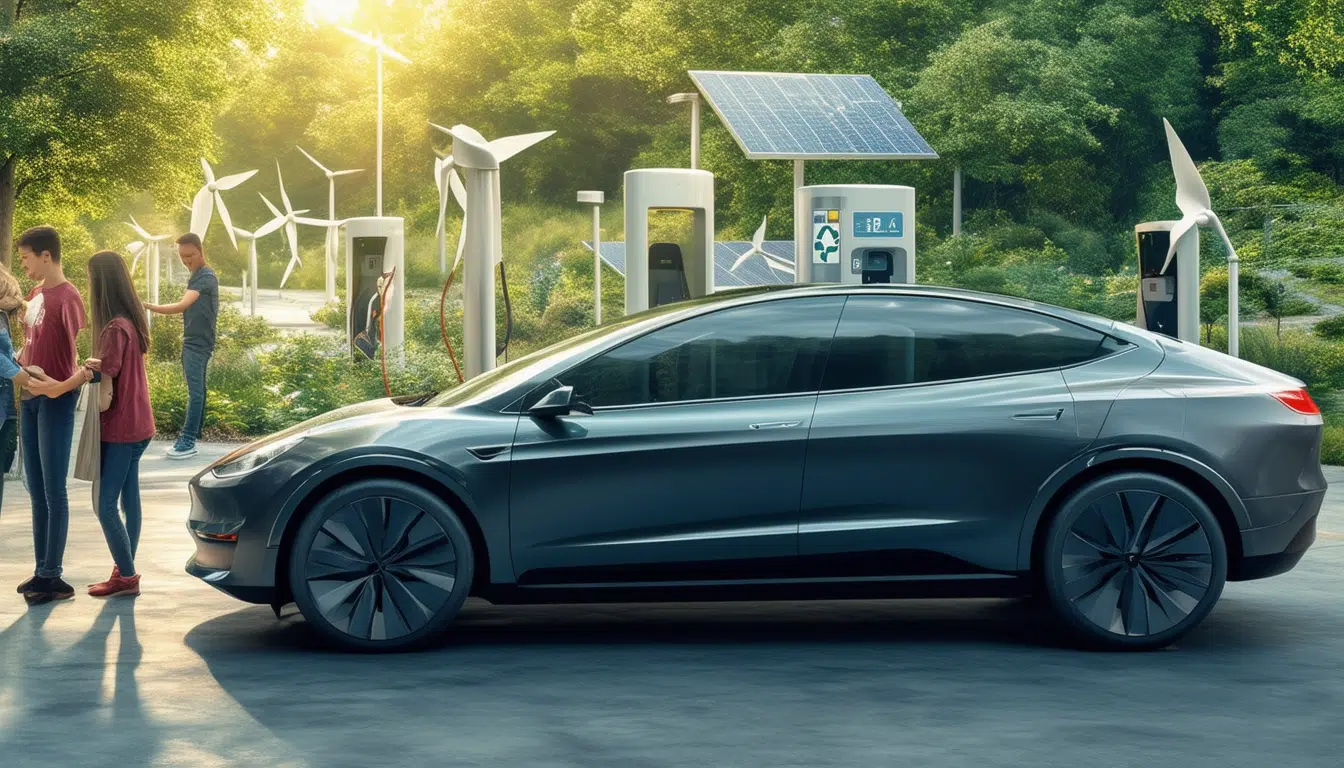Benefitsof electric vehicles: Why are they important?

In a world where sustainability is becoming increasingly crucial, electric vehicles emerge as a powerful solution to reduce environmental impact. These cars not only offer a zero-emission alternative at the tailpipe but also feature a simpler design with fewer components than their combustion counterparts, which reduces mechanical failures. Furthermore, energy conversion in electric cars is significantly more efficient, allowing for better utilization of energy resources. As electric mobility expands, its role in reducing pollution and improving urban quality of life becomes indispensable.
In an increasingly aware world of the importance of protecting the environment, electric vehicles are presented as an essential alternative in the transition to sustainable mobility. This article explores how these cars not only reduce pollution but also offer significant improvements in energy efficiency and lower maintenance. Additionally, it addresses the growing popularity of these vehicles in various markets, such as Mexico, and explains the additional benefits they bring, from government incentives to their contribution to more livable cities.
Introduction to Electric Vehicles
Electric vehicles have begun to gain popularity worldwide, largely due to their multiple environmental and economic benefits. Designed to minimize emissions, their operation is based on electric motors that convert energy stored in rechargeable batteries into kinetic energy, thus differentiating them from internal combustion engines.
Environmental Benefits
One of the most significant advantages of electric cars is their ability to dramatically reduce emissions of polluting gases. These emissions are among the main culprits of climate change and public health issues. By opting for electric cars, one contributes to decreasing pollution in cities, thus promoting the development of healthier environments.
Economic Advantages
Compared to traditional vehicles, electric ones have a lower operating cost. The expenditure on electricity is significantly less than that on fossil fuel. Additionally, due to the fewer moving parts and the absence of complex systems like a gearbox, the maintenance of these vehicles is much less burdensome.
Energy Efficiency
In terms of energy efficiency, electric cars outperform combustion ones. While a gasoline engine converts only 17 to 21 percent of the energy into power to move the vehicle, an electric motor uses between 59 and 62 percent of the energy for this purpose, resulting in better utilization of energy resources.
Social Benefits
These vehicles contribute to developing quieter cities with less visual pollution. They are also more comfortable for users as they operate without generating vibrations or annoying noises, thus improving the quality of life in dense urban areas.
Applications in the Mexican Market
Mexico is positioning itself as an important market for electric vehicles, particularly those produced in China. According to data from the Mexican Association of the Automotive Industry (AMIA), sales of these vehicles in January 2024 experienced a growth of 74.5 percent compared to the previous year. This trend underscores a significant shift in consumer behavior towards more sustainable mobility options.
The Olinia Project
Within this context, the new electric car “Olinia,” produced in Mexico, aims to position itself as a strong competitor in the global electric car market. This project is intended to strengthen the local economy and encourage the use of clean technologies, pushing Mexico toward a future with greater environmental responsibility.
Government Incentives
Many governments, including some state governments in Mexico, offer economic incentives to those who choose electric cars. These incentives can range from discounts on registration fees to direct subsidies, facilitating the transition to cleaner and more accessible mobility.
Conclusion: A Promising Future
With a growing demand for more eco-friendly solutions, electric cars represent an excellent option for those eager to contribute to planet care. From their contribution to reducing polluting emissions to their role in building more peaceful cities, these vehicles prove to be a comprehensive solution to modern challenges.
For more information about the automotive industry and its innovations, visit the following links:
Exploring the best-kept secrets of vehicles in Mexico,
The stunning Nissan Ariya Nismo arrives in Spain.
The relevance of electric vehicles today
Electric vehicles have emerged as a crucial tool in the fight against climate change and global pollution. They not only provide a cleaner and more efficient alternative to internal combustion engines but also promote a more sustainable future. By harnessing energy stored in rechargeable batteries, these vehicles eliminate the need for fossil fuels, significantly reducing emissions of CO2 and other harmful pollutants.
In addition to their environmental impact, electric vehicles offer multiple economic and functional advantages. An electric vehicle requires less maintenance, which means a lower long-term cost for its owners. The reduction of moving parts and the less complex design of these vehicles contribute to lower rates of mechanical failures. This translates into significant savings compared to traditional cars.
On the other hand, the energy efficiency of electric cars is exceptional. The batteries convert more than 60% of the energy to move the vehicle, in contrast to gasoline engines that only utilize a much smaller percentage. This performance translates into more effective use of resources, contributing to a decrease in the dependence on non-renewable fuels.
Finally, the growing adoption of electric vehicles is supported by government incentives in various countries, making their acquisition more accessible to the general public. These incentives reflect nations’ commitment to a cleaner future, emphasizing the importance of transitioning to more environmentally friendly transportation options.
In summary, electric vehicles are not only a technological innovation but also an urgent necessity to address current environmental challenges. Their importance lies not only in their ability to improve air quality and reduce emissions but also in their potential to drive significant changes in how we interact with our environment and how we plan for a more sustainable future.



